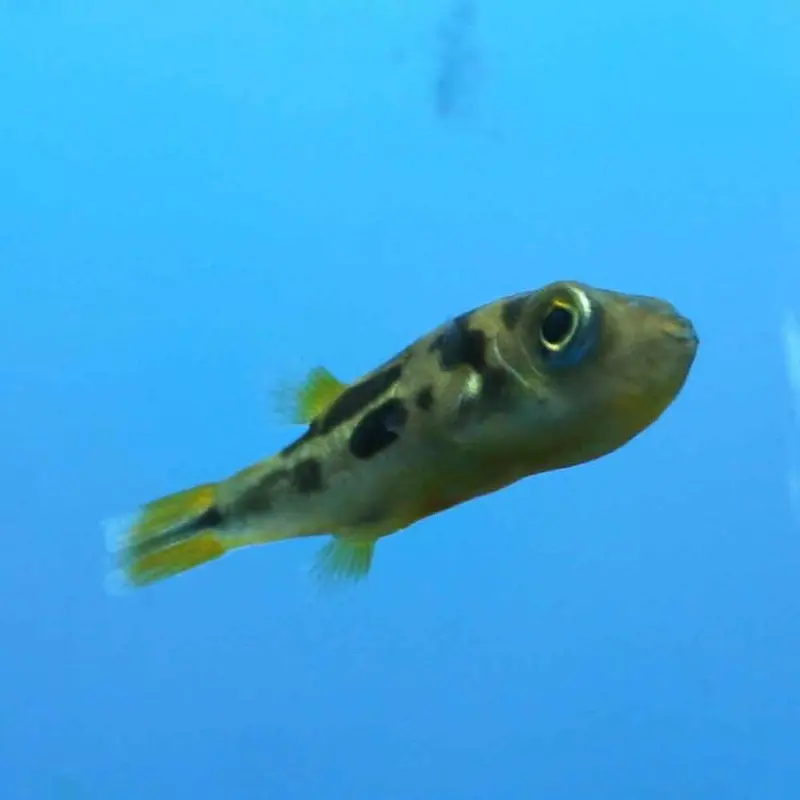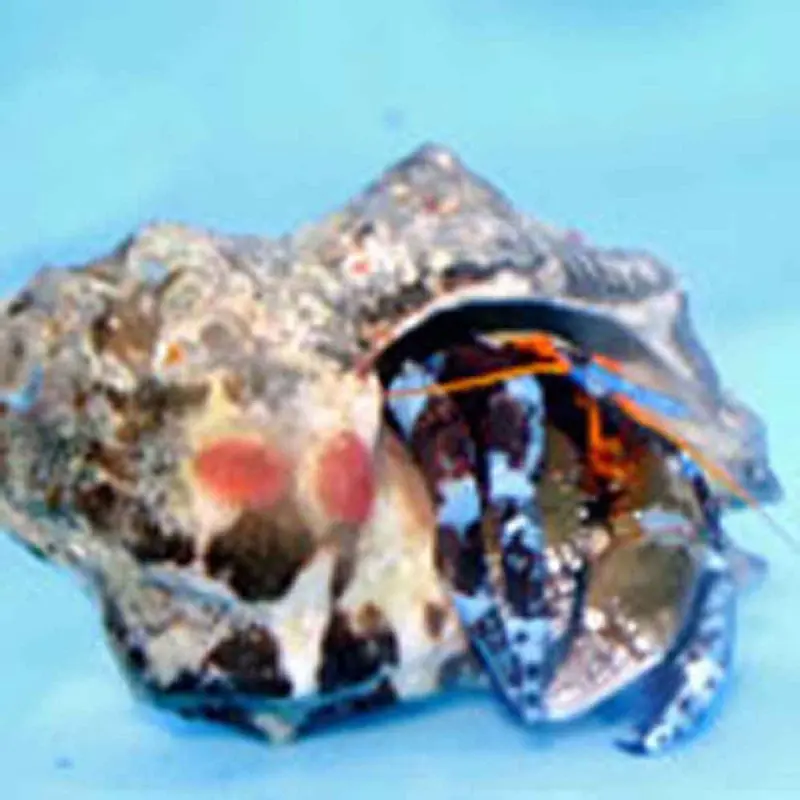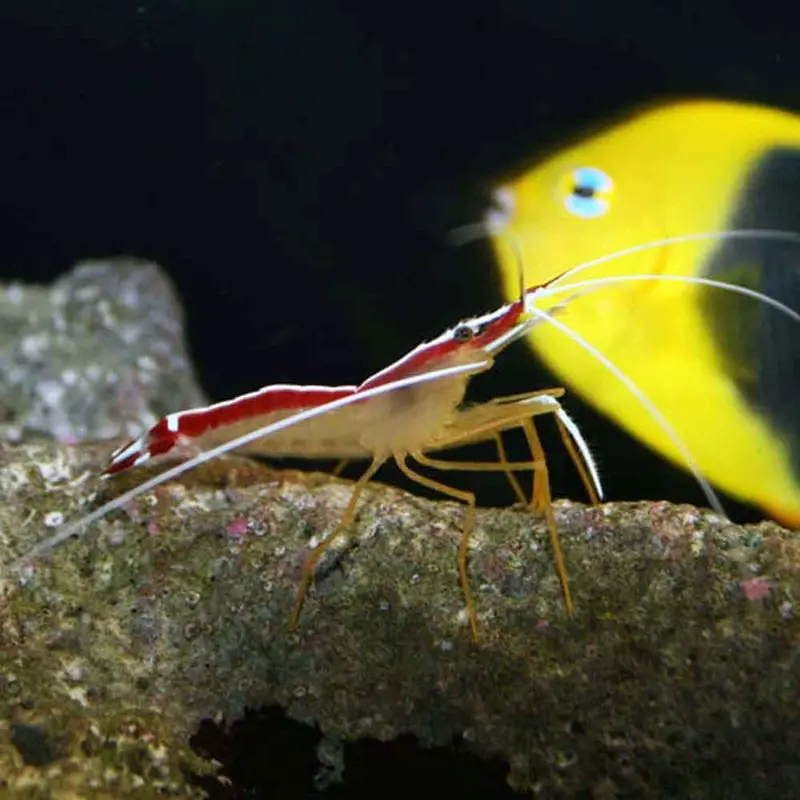 Sale!
Sale! Malabar Dwarf Puffer – Carinotetraodon travancoricus
$7.99 $9.99
These puffers are generally small juveniles at the time of purchased and cannot be sexed. We cannot guarantee gender or offer specific gender requests on this fish. The puffers we receive are farm-raised and are not medicated or pretreated for disease or parasites until symptoms present.
The Malabar Dwarf Puffer is, as its name suggests, one of the smallest of puffer species. They are a freshwater species, but will tolerate very dilute brackish water. Like their larger relatives, these dwarf puffers are territorial fish, and will often nip the fins even of their larger tankmates. For this reason, they should only be kept with tankmates if they are larger and peaceful, and are hardy enough to withstand some fin-nipping. Males are particularly aggressive toward each other when mature, so it is best to keep these fish in pairs or one to a tank.
The Malabar Dwarf Puffer (Carinotetraodon travancoricus) is characterized by a brownish to green dorsal side with dark irregular spots and some yellow tint. The belly is whitish or yellowish. The fins are rounded, and are tinged with yellow toward the base, becoming clear at the ends. There is some evidence that mature male dwarf puffers can be identified by a horizontal stripe located from behind the pectoral fins to the tail, which darkens during mating. Male puffers are generally slimmer and less rounded in appearance.
Puffers are incredibly popular for aquariums. Many puffers are curious and outgoing and they may even seem to know when their keeper is near, swimming quickly to the aquarium glass or water’s surface when someone approaches the tank. While endearing, puffers may not be the right choice for some aquariums.
Puffers are not too demanding in terms of care, but they need plenty of space and ample filtration to keep the water quality pristine. They’re messy eaters, and the diet required for these fish can leave a lot of waste. Puffers have strong, ever-growing front teeth (beak) that they will need to wear down. They may chew on rockwork in the tank to aid in the process. Feeding hard-shelled items, such as whole clams or shellfish, can also help to keep the teeth worn. Their diet should consist of a variety of meaty items like crab, shrimp, scallops, squid, krill and similar items.
It is important to never provoke a puffer to see it inflate. Puffing is a stress or defense reaction, and it can cause health problems or even death for a puffer. The fish can swallow air or over-inflate with water, leading to even more stress as the fish attempted to recover and even death due to stress-related complications or internal injuries. If a puffer inflates, remove the source of the stress, lower the lighting on the tank and allow the fish to recover on its own. Avoid using a net or removing the puffer from the water and exposing it to air. Instead, transfer with rigid containers, which will minimize stress that can cause them to puff.
Some puffers are found in freshwater while others are from brackish environments and should not be kept in freshwater tanks. Brackish water is between freshwater and saltwater and has a Specific Gravity of around 1.005 to 1.015; most brackish water fish need increasing salinity as they grow and mature. They may live in brackish water as juveniles but need full saltwater as adult. Puffers are not community fish; they may prey on smaller fish or nip at the fins of passive fish their own size or larger. Even the tiny 1-inch-long Dwarf Puffers have been known to bully much larger tankmates!
Visit
| Cost: | $25 |
| Free Shipping: | We offer free shipping on orders over $30. Please check the free - shipping eligibility at checkout. |
| Delivery Time: | It usually takes [3-5] business days for standard shipping. Please note that this is an estimated time frame and may be affected by local holidays, and unforeseen circumstances. |





Reviews
There are no reviews yet.